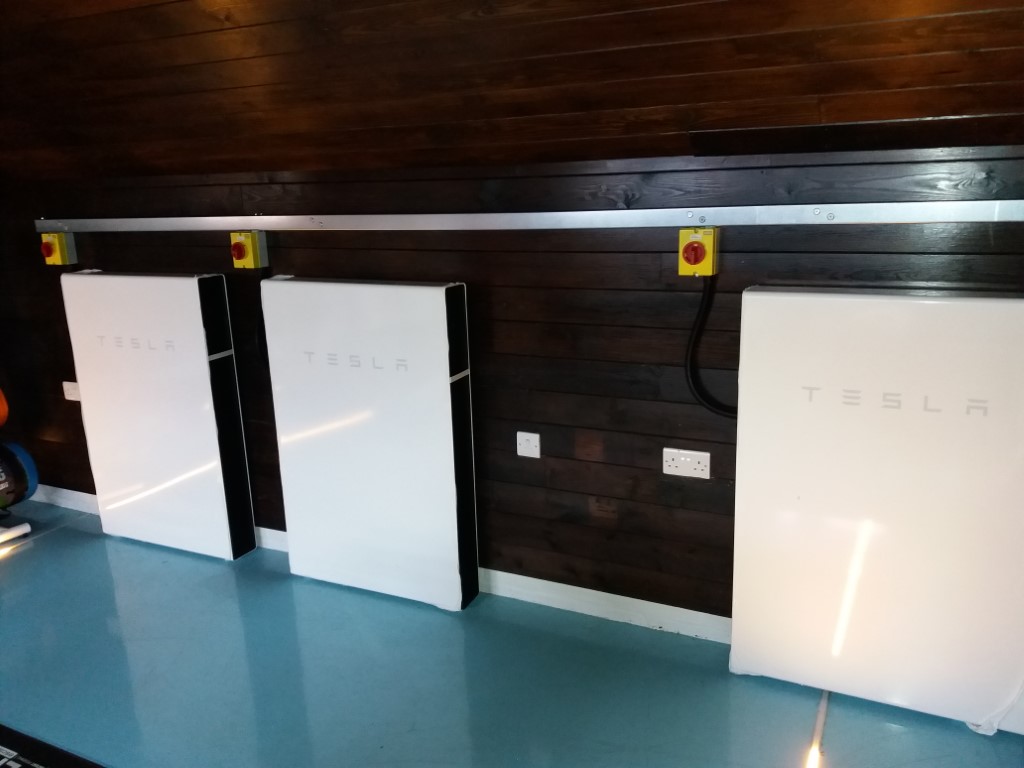Everything You Need to Know About Home Solar Battery Storage

As renewable energy gains momentum, many homeowners are considering home solar battery storage as a way to maximise the benefits of their solar panels.
Solar battery storage systems allow homeowners to store excess electricity generated by their solar panels during the day and use it during times of high energy demand or when sunlight is unavailable. In this informative article, we will cover everything you need to know about home solar battery storage, including its benefits, components, installation process, maintenance, and considerations.
Benefits of Home Solar Battery Storage:
Increased Energy Independence: With solar battery storage, homeowners can reduce their reliance on the grid by storing excess energy generated by their solar panels. This allows them to use solar power even when the sun is not shining, such as during the evening or during power outages.
Energy Cost Savings: By storing and using solar-generated electricity, homeowners can reduce their reliance on grid electricity, resulting in lower energy bills over time.
Time-of-Use Optimisation: Homeowners can take advantage of time-of-use (TOU) electricity rates by charging the battery during off-peak times when electricity rates are lower and using stored energy during peak hours when rates are higher.
Backup Power: In the event of a power outage, solar battery storage systems can provide backup power, allowing critical appliances and systems to continue operating.
Components of Home Solar Battery Storage:
Solar Panels: Solar panels capture sunlight and convert it into electricity. They are the primary source of energy for the battery storage system.
Battery Bank: The battery bank stores excess electricity generated by the solar panels. It consists of multiple batteries connected together to provide the desired storage capacity.
Inverter: The inverter converts the direct current (DC) electricity stored in the batteries into alternating current (AC) electricity that can be used to power appliances and systems in the home.
Charge Controller: The charge controller regulates the flow of electricity between the solar panels, batteries, and inverter, ensuring the batteries are charged safely and efficiently.
Installation Process:
Assessment: A professional installer will assess your energy needs, available solar resources, and the suitability of your home for solar battery storage. They will also evaluate the compatibility of your existing solar panel system with battery integration.
System Design: Based on the assessment, the installer will design a system that meets your specific energy requirements. This includes determining the appropriate battery capacity, inverter size, and other system components.
Installation: The solar battery storage system is installed, which involves mounting the batteries and connecting them to the solar panels, inverter, and electrical system of your home. This should be done by qualified professionals to ensure proper installation and compliance with electrical codes and regulations.
Commissioning: Once the system is installed, it is commissioned and tested to ensure it is functioning correctly. The installer will provide instructions on how to operate and monitor the system.
Maintenance and Considerations:
Regular Monitoring: It is important to monitor the performance of your solar battery storage system regularly. Many systems come with monitoring software that allows homeowners to track energy production, battery levels, and overall system performance.
Battery Lifespan: Batteries have a limited lifespan and will degrade over time. The lifespan depends on various factors such as battery chemistry, usage patterns, and maintenance. It is important to consider the expected lifespan of the batteries and factor in replacement costs.
System Expansion: If you have plans to expand your solar panel system in the future, consider whether the battery storage system can accommodate the increased energy production and storage needs.
Financial Considerations: The cost of installing a solar battery storage system can be significant. Consider the return on investment, available incentives, and financing options to determine the financial viability of the system for your specific circumstances.
Home solar battery storage offers homeowners the ability to store and use solar-generated electricity, increasing energy independence, reducing energy costs, and providing backup power during outages.
By understanding the benefits, components, installation process, maintenance requirements, and considerations associated with solar battery storage, homeowners can make informed decisions and maximise the benefits of their solar panel systems. Consult with professional installers and explore available incentives to determine the best solar battery storage solution for your home.